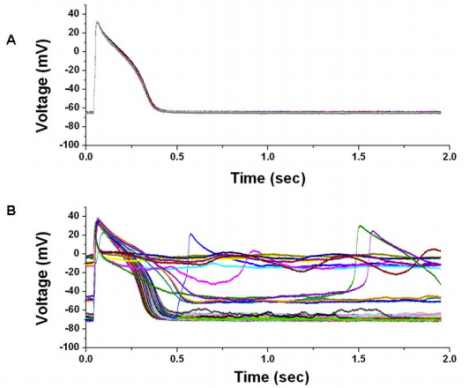This Valentine’s Day, BP should dedicate some hearts to fish that were exposed to its Deepwater Horizon spill — new research suggests that the spill may have broken theirs.
Scientists investigating the aftermath of the 2010 oil spill have discovered that even very low concentrations of crude in seawater interfered with the normal pumping of tuna hearts. After exposing captured yellowfin and bluefin to BP oil-spill samples, the researchers detected irregular heartbeats, which can lead to fatal cardiac arrest.
Because a wide range of animals have similar heart designs, the researchers are warning that species from turtles to dolphins could also be affected. Even exposed humans could be at risk.
“The ability of a heart cell to beat depends on its capacity to move essential ions like potassium and calcium into and out of the cells quickly,” said Stanford University researcher Barbara Block, coauthor of a study published Friday in the journal Science. “We have discovered that crude oil interferes with this vital signaling process essential for our heart cells to function properly.”
Check out these graphs from the paper. The top one shows the normal and consistent pumping of 20 healthy tuna heart cells. The bottom one shows arrhythmia in 20 heart cells exposed to BP’s spilled oil.

ScienceClick to embiggen.



